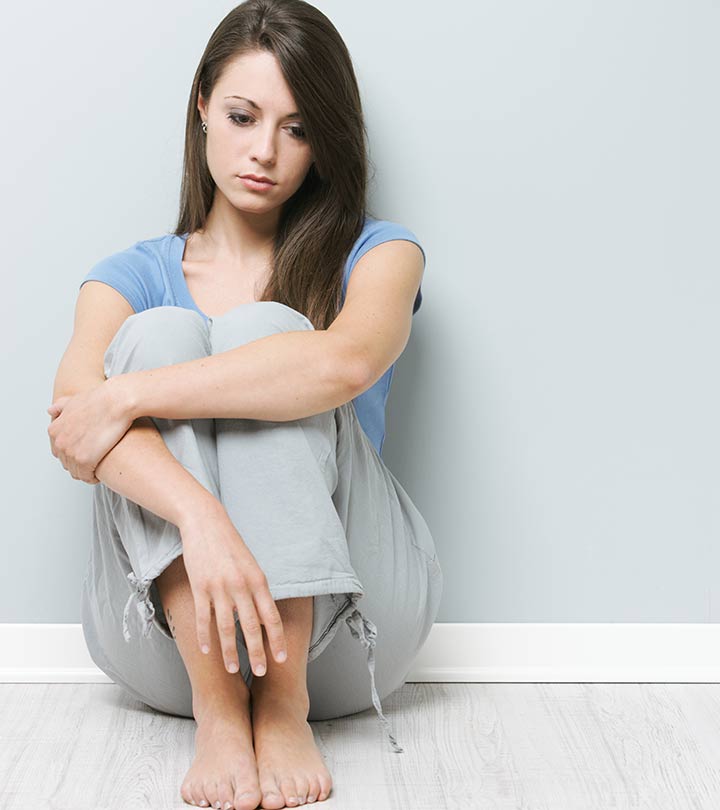10 Symptoms Of Low Estrogen Levels And How To Increase It: Low estrogen levels can manifest in various symptoms such as hot flashes, irregular periods, decreased sex drive, mood swings, and insomnia. To increase estrogen levels naturally, incorporate estrogen-rich foods like fruits, grains, nuts, and seeds into your diet.
Additionally, hormonal replacement therapy (HRT) can be an effective treatment option. Symptom management and addressing underlying conditions can also help increase estrogen levels. Take proactive steps to address low estrogen symptoms by making lifestyle changes and consulting with a healthcare professional.
Remember, maintaining optimal estrogen levels is essential for overall health and well-being.
:max_bytes(150000):strip_icc()/low-estrogen-levels-4588661_final-08ced4074f744fd28b4ca87d26389460.png)
Symptoms Of Low Estrogen Levels
Experiencing symptoms of low estrogen levels can be concerning, but there are ways to address it. Common symptoms include hot flashes, night sweats, and irregular periods. Increase estrogen naturally by incorporating fruits, grains, liquids, nuts, and seeds into your diet.
Additionally, hormone replacement therapy (HRT) and symptom management are treatment options to consider.
Hot Flashes And Night Sweats
One of the most common symptoms of low estrogen levels is experiencing hot flashes and night sweats. These sudden, intense feelings of heat can be accompanied by sweating, flushing of the skin, and rapid heartbeat. Hot flashes can last anywhere from a few seconds to several minutes and may occur multiple times a day or only occasionally. Night sweats, on the other hand, are hot flashes that occur during sleep and can cause excessive sweating that can disrupt your sleep cycle and leave you feeling exhausted.
Irregular Menstrual Periods
Another telltale sign of low estrogen levels is having irregular menstrual periods. Estrogen plays a crucial role in regulating the menstrual cycle, and low levels can lead to changes in the frequency, duration, and intensity of your periods. You may experience shorter or longer cycles, skipped periods, or heavier or lighter flow. These irregularities can make it difficult to predict when your period will come and may indicate an underlying hormonal imbalance that needs to be addressed.
Decreased Sex Drive
When estrogen levels are low, it can lead to a decrease in sex drive or libido. Estrogen plays a vital role in maintaining sexual health and desire in women. When levels drop, you may experience a loss of interest in sexual activity, difficulty becoming aroused, or reduced pleasure during intercourse. This can have a significant impact on your overall quality of life and intimate relationships.

Causes Of Low Estrogen Levels
Low estrogen levels can lead to various symptoms such as hot flashes, irregular periods, and decreased sex drive. To increase estrogen levels naturally, include fruits, grains, liquids like coffee and tea, and nuts and seeds in your diet. Hormone replacement therapy and symptom management are also treatment options to consider.
Low estrogen levels in the body can be caused by various factors, including:
Menopause
Menopause is a natural process that occurs in women, usually around the age of 45 to 55. During menopause, the ovaries gradually produce less estrogen, leading to low estrogen levels. This decline in estrogen can cause a wide range of symptoms, including hot flashes, night sweats, mood swings, and vaginal dryness.
Ovarian Dysfunction
Ovarian dysfunction refers to any condition that affects the normal functioning of the ovaries, such as polycystic ovary syndrome (PCOS) or premature ovarian failure (POF). These conditions can disrupt the production of estrogen, resulting in low estrogen levels. Symptoms of low estrogen due to ovarian dysfunction may include irregular or absent menstrual periods, infertility, and mood changes.
Medical Conditions
Various medical conditions can also contribute to low estrogen levels. Some examples include:
- Thyroid disorders: An underactive or overactive thyroid gland can affect hormone production, including estrogen.
- Eating disorders: Severe calorie restriction or excessive exercise can disrupt normal hormonal balance, leading to low estrogen levels.
- Autoimmune disorders: Certain autoimmune disorders, such as lupus or rheumatoid arthritis, can affect the ovaries and impair estrogen production.
- Chemotherapy or radiation therapy: Cancer treatments can damage the ovaries, resulting in decreased estrogen production.
- Hysterectomy: Surgical removal of the uterus and/or ovaries can lead to a sudden drop in estrogen levels.
It’s important to note that these are just a few examples of medical conditions that can cause low estrogen levels. It’s always best to consult with a healthcare professional for an accurate diagnosis and appropriate treatment.
Ways To Increase Estrogen Levels
Low estrogen levels can lead to a range of symptoms, such as hot flashes, night sweats, and irregular periods. If you’re experiencing these symptoms, it’s important to take steps to increase your estrogen levels. Here are some effective ways to boost your estrogen naturally:
Hormone Replacement Therapy
Hormone replacement therapy (HRT) is a common treatment option for low estrogen levels. It involves taking synthetic forms of estrogen or progesterone to restore hormonal balance in the body. HRT can help alleviate symptoms like hot flashes and night sweats, and it may also reduce the risk of osteoporosis and heart disease.
Estrogen Therapy
Estrogen therapy is a type of HRT that focuses on using estrogen alone. This option is typically recommended for women who have undergone a hysterectomy and don’t need the addition of progesterone. It can be delivered through various methods, including pills, patches, creams, and vaginal rings.
Symptom Management And Underlying Condition Treatment
Aside from hormone replacement therapy, managing the symptoms of low estrogen levels can be achieved through various lifestyle changes and natural remedies. Regular exercise, maintaining a healthy weight, and stress reduction techniques can all help improve hormonal balance. Additionally, treating underlying conditions that may be causing the low estrogen levels, such as polycystic ovary syndrome (PCOS) or thyroid disorders, can also help increase estrogen production.
It’s important to note that before considering any treatment options, including hormone replacement therapy, it’s crucial to consult with a healthcare professional who can evaluate your specific situation and provide guidance on the best course of action.
References:

Frequently Asked Questions For 10 Symptoms Of Low Estrogen Levels And How To Increase It
How Can I Raise My Estrogen Levels Quickly?
To raise your estrogen levels quickly, include fruits like apples, berries, and grapes, grains such as barley and oats, liquids like coffee and red wine, and nuts and seeds like almonds and flaxseeds in your diet. You can also consider hormone replacement therapy or estrogen therapy as treatment options.
How Do You Fix Low Estrogen Symptoms?
To fix low estrogen symptoms, options include hormone replacement therapy (HRT) to restore estrogen levels, estrogen therapy using only estrogen, symptom management, and treating underlying conditions. Increasing estrogen naturally can be done through consuming fruits, grains, liquids derived from plants, nuts, and seeds.
Symptoms of low estrogen include hot flashes, flushes, night sweats, and blood rushing to the skin’s surface. Hormone replacement therapy (HRT) or hormone replacement therapy using estrogen or progesterone can also be used to increase estrogen levels.
How Does A Woman Feel When Her Estrogen Is Low?
A woman may experience hot flashes and night sweats when her estrogen levels are low. She may also feel a sensation of warmth as blood rushes to the skin’s surface. Low estrogen can have various symptoms that impact the overall health and well-being of a woman.
How Can I Raise My Estrogen Levels Quickly By Medicine?
To raise estrogen levels quickly, you can consider hormone replacement therapy (HRT) with synthetic estrogen or progesterone. This can be achieved through estrogen therapy or estrogen progesterone/progestin hormone therapy (EPT). HRT helps restore hormone levels and alleviate low estrogen symptoms like hot flashes.
Regular consumption of certain foods like fruits, grains, liquids derived from plants, nuts, and seeds can also help increase estrogen naturally.
Conclusion
If you are experiencing symptoms of low estrogen levels, it’s important to take action to increase your estrogen levels naturally. Incorporating estrogen-boosting foods such as fruits, grains, liquids derived from plants, nuts, and seeds into your diet can help restore hormonal balance.
Additionally, hormone replacement therapy and symptom management can be effective treatment options. Remember, maintaining optimal estrogen levels is crucial for maintaining overall health and well-being. Take control of your hormone levels and start feeling better today.


